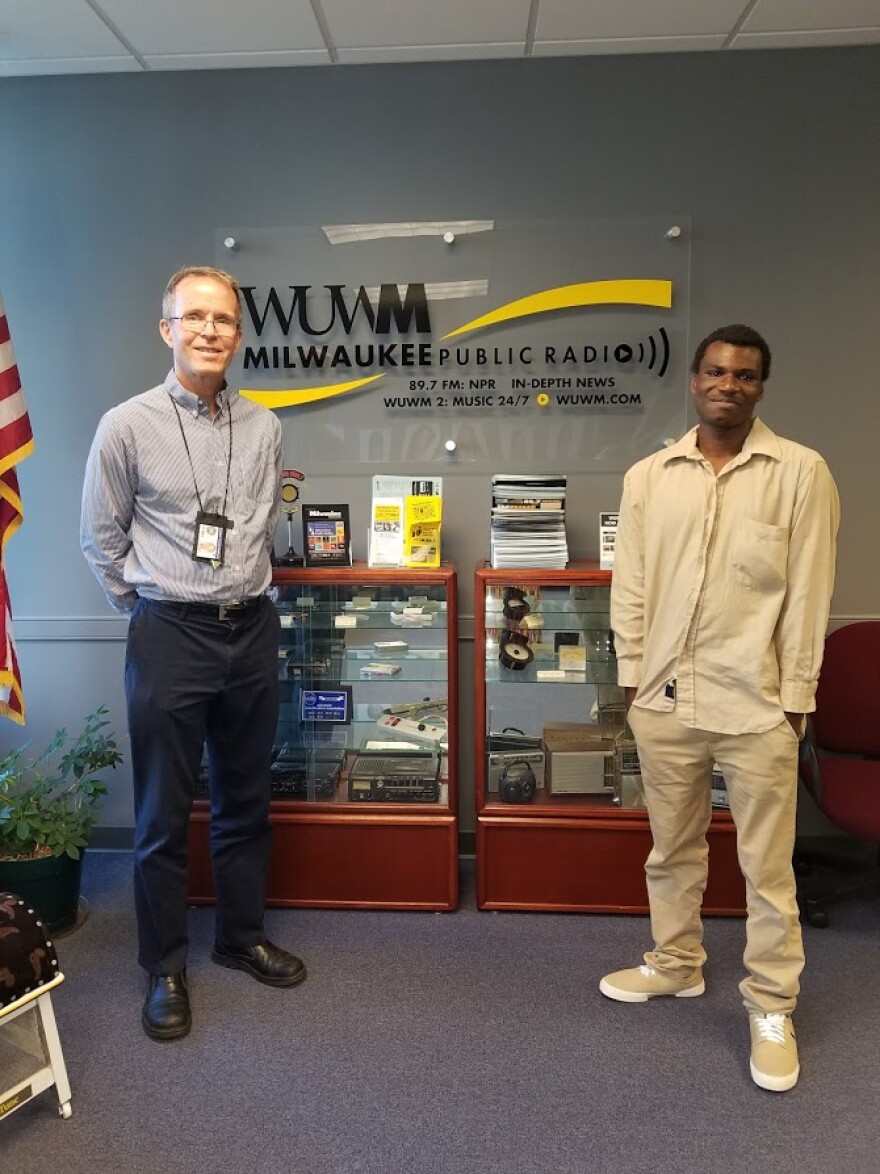September is National Recovery Month, but raising awareness about mental health, drug and alcohol abuse and suicide prevention is helpful throughout the year.
During last month's MTV Video Music Awards, hip hop artist, Logic performed his song 1-800-273-8255 with help from Alessia Cara and Khalid, who are also featured on the track. A stage full of survivors of suicide attempts along with those who lost love ones to suicide wore "YOU ARE NOT ALONE" and "1-800-273-8255" t-shirts, which is the number to the National Suicide Prevention Lifeline.
Lifeline's director of communications, Frances Gonzalez, reported to Billboard.com that the hotline experienced a 50 percent increase in calls after the performance.
Dr. Steven Dykstra of the Milwaukee County Behavioral Health Division and 19-year-old Jalen Komar are trying to raise awareness locally.

Dykstra explains why it’s important to see recovery as multi-faceted: "We don't want to associate the word recovery just with substance abuse or just with one thing from which people can recover. Lots of people around us are managing and trying to recover from various challenges. Some of them are trauma related, some of them are what we think of as traditional mental health related."
"The key of that, substance abuse included, is the notion of recovery, that you can make your way back from where you were," he details. "You can get back to something that you had before, maybe even something that you didn't have before."
Jalen Komar has had mental health struggles of his own, having been diagnosed with bipolar disorder at age 13. Then things started to spiral out of control, he says, "I wasn't going to school. I wasn't keeping up with my medication. I was refusing to do what I was told, [was being] disrespectful to others. I showed no kind of empathy to others' problems or trying to relate. I was very self-centered."
"You can get back to something that you had before, maybe even something that you didn't have before."
"I really wasn't hanging around good people at the time," Komar continues. "Granted, I didn't have that many people hanging around. I think it was just my sole decision to make the bad choices that I made. I felt that led to making my mental illness way worse than it needed to be."
He says that as he swung into depression, he attempted to take his own life. "All I basically remember is me grabbing a dog leash, going out to the garage, and from there on I really don't remember what happened."
Komar does know what came next. "I ended up in the hospital and I was on life support for two weeks," he says.
"More people were pulling for you than could come visit you. I just want you to know that there were hundreds of us..."
It turns out that Dr. Dykstra had something to share about Komar's recovery. "I saw you when you were in the hospital," he say. "I was there, and I saw your mother there... You'll never remember it because you were unconscious at the time. It is so good to see how well you are doing... More people were pulling for you than could come visit you. I just want you to know that there were hundreds of us who were so worried about you and so glad."
"We've all heard the phrase about being in a downward spiral...it's also real to be in an upward spiral," Dykstra says. "You have this general feeling over time, you're moving forward, you're moving up instead of moving down. Sometimes a little bit better is a lot better."
https://www.youtube.com/watch?v=BLe1dddgZrg
"The thing I want people to realize is if they're worried about themselves or about people that are close to them, if they reach out to us, we can help them get connected to what they need, help them make a plan, start taking those first few steps forward so that things can be better," he says.
"Finding little, acceptable, gentle ways back to connectedness with people is very, very often the core of recovery," Dykstra adds.
The Milwaukee County Behavioral Health Division offers resources and programs such as Wraparound and Oh Yeah for juveniles and young adults, and can be reached at (414) 257-7665 or online here.







